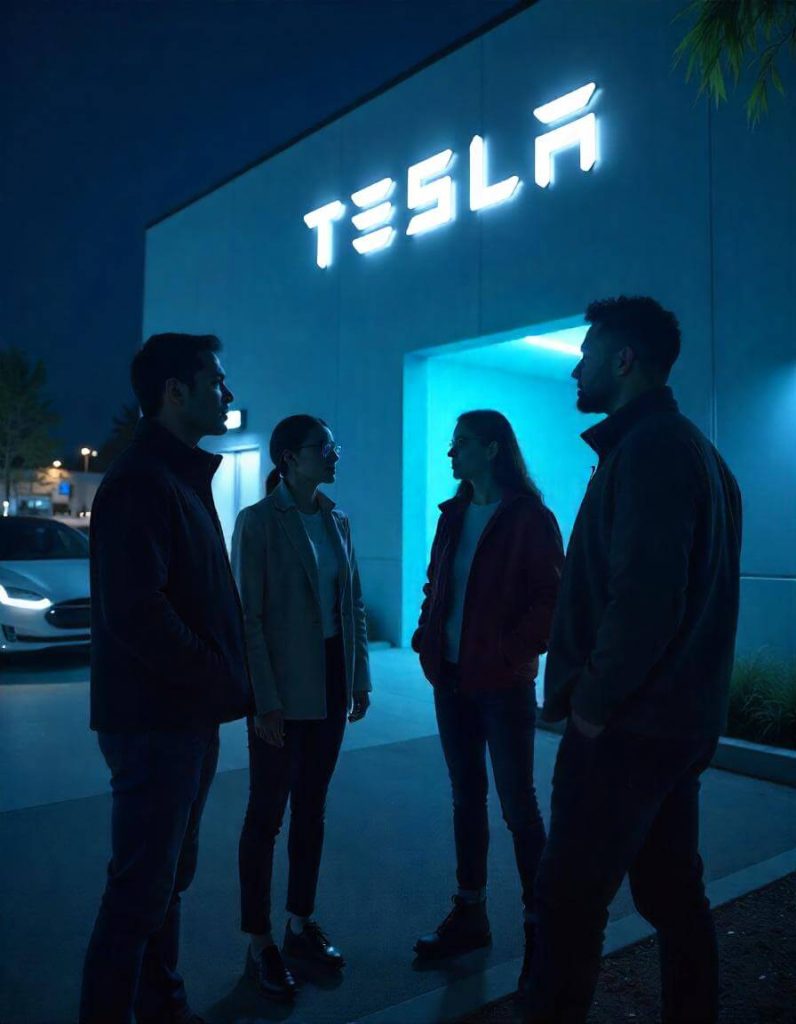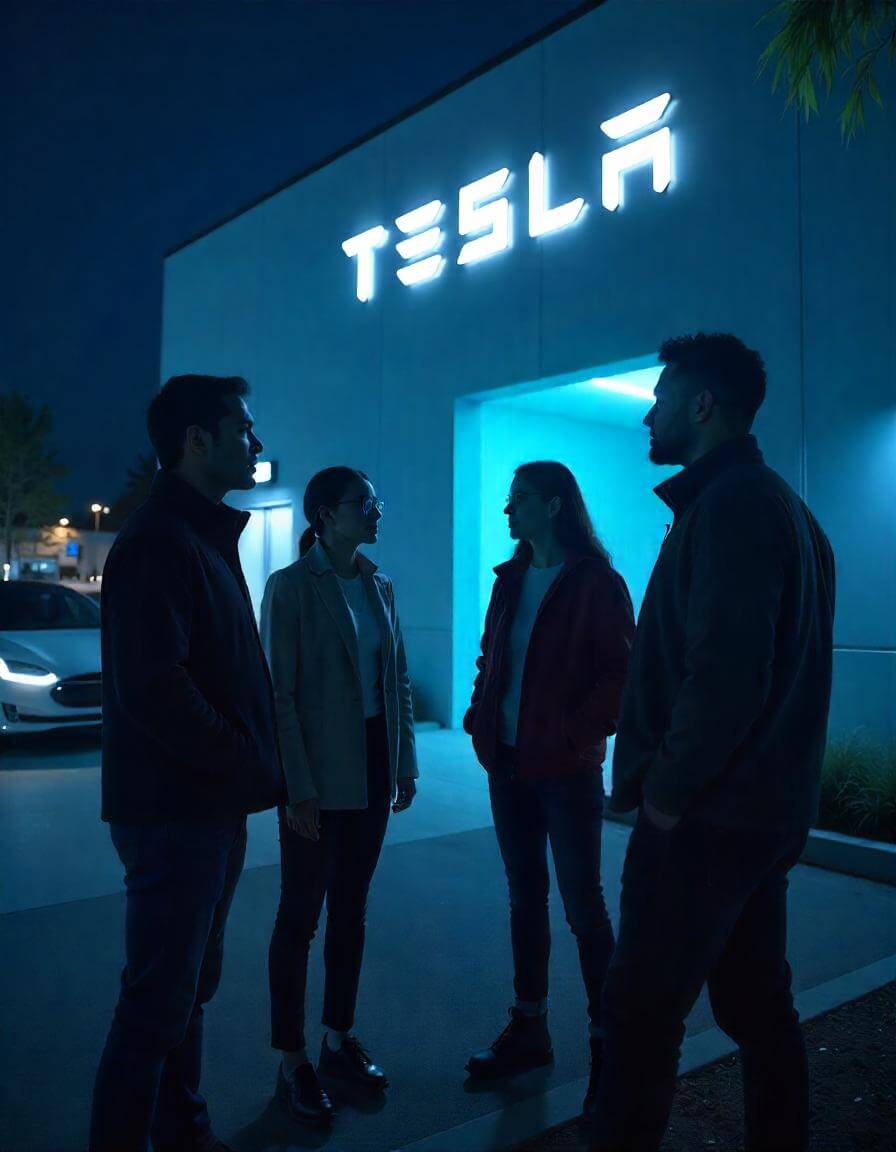In recent years, Tesla has constantly advanced technological innovation, revolutionizing the electric vehicle (EV) market and spearheading renewable energy solutions. Nonetheless, one of the company’s most daring endeavors—its entry into quantum technology—has garnered the interest of the technology sector, signifying a new phase in Tesla’s development. Tesla’s quantum progress is poised to transform not only the electric vehicle sector but also other fields such as computers, energy storage, and artificial intelligence (AI).
The Quantum Leap: Tesla’s Prognosis for the Future
Quantum technology fundamentally utilizes the laws of quantum mechanics to address challenges that are insurmountable for classical computers. This encompasses the capacity to concurrently process extensive data sets, enhance the efficiency of energy systems, and develop sophisticated AI models that may propel Tesla’s future advancements. Elon Musk, the innovative CEO of Tesla, has consistently advocated for transformative innovations. His fascination with quantum computing is unsurprising, as it corresponds with his primary objective of enhancing humanity through sustainable energy and innovative technologies.
Tesla’s aspirations in quantum technology coincide with significant investments in quantum computing by leading tech firms such as Google, IBM, and Microsoft. Tesla’s foray into this sector may appear atypical relative to established technology titans, however it exemplifies Musk’s steadfast dedication to addressing some of the globe’s most intricate issues.
Quantum Computing: A Transformative Force for Tesla
One of the most immediate applications of quantum technology for Tesla is its capacity to accelerate the advancement of AI systems, especially in the domain of autonomous driving. Tesla’s Full Self-Driving (FSD) technology, which now employs AI and neural networks, could significantly benefit from quantum computing. Quantum computers possess the capability to process and analyze extensive datasets far faster than conventional computers. This velocity and efficacy may enable to enhance its self-driving algorithms, expediting the rollout of fully autonomous vehicles on a significantly accelerated timeframe.
Moreover, quantum computing has the potential to improve Tesla’s energy storage efficiency has pioneered the development of high-capacity lithium-ion batteries via its Gigafactories, and quantum computing may elevate these gains further. capability to model and simulate complicated materials at the quantum level may enable the discovery of novel materials that substantially improve battery performance, rendering them lighter, more efficient, and longer-lasting. These developments could transform electric vehicles and renewable energy storage, establishing the basis for a sustainable, electric-powered future.
Enhancing Manufacturing and Production Efficiency
Tesla’s quantum endeavor may enhance its production operations. Utilizing quantum computing, might develop more efficient and economically viable production processes for its vehicles and energy products. Quantum algorithms can model intricate supply networks and production processes, pinpointing bottlenecks and inefficiencies that would typically require months to detect with conventional approaches.
Furthermore, quantum simulations may enable Tesla to enhance the design of vehicle components, including the aerodynamics of the car body and the materials utilized in battery pack construction. Quantum computers can replicate the behavior of molecules and materials at the atomic scale, offering engineers critical insights on material performance prior to production. The capacity to forecast results with significant accuracy would diminish prototyping duration, decrease expenses, and expedite the creation of new items.
Quantum Mechanics in Energy and Sustainability
Tesla has consistently been a frontrunner in the renewable energy industry, exemplified by products like the Solar Roof and the Powerwall, a residential battery system that stores solar energy. Through quantum technology, could unveil the subsequent frontier of energy generation and storage. Quantum computers possess the capacity to transform the modeling of intricate energy systems, encompassing wind and solar power generation, grid management, and the optimization of energy usage.
Quantum computing may facilitate the progression of Tesla’s objectives in developing sustainable energy solutions globally. Through the simulation and optimization of chemical reactions at the molecular level, might identify more efficient energy production methods, minimize waste, and enhance the performance of energy storage devices. overarching objective is to establish a completely sustainable ecosystem dependent on clean energy, with quantum computing potentially serving as the pivotal element in realizing this ambition.

The Path Forward: Obstacles and Prospects
Tesla’s foray into the quantum computing domain is an exhilarating advancement, however considerable obstacles remain. Quantum computers remain in the experimental phase, and the creation of scalable quantum systems applicable to routine commercial challenges is a formidable endeavor. must engage with leading quantum researchers and academic institutions to surmount these challenges.
Nonetheless, the prospective benefits are substantial. effectively integrates quantum computing into its manufacturing, artificial intelligence, energy, and autonomous driving technologies, the business might transform sectors and establish new benchmarks for technological advancement. Considering history of surmounting obstacles and transforming markets, it is plausible that the corporation will achieve notable progress in quantum technologies in the forthcoming years.
Conclusion: Tesla’s Quantum Transformation
Tesla’s aggressive venture into quantum technology signifies a daring and ambitious progression into unexplored realms. the ability to transform autonomous driving, battery technology, manufacturing processes, and energy solutions by harnessing the capabilities of quantum computing. Elon Musk’s vision for a sustainable and technologically advanced future matches seamlessly with the prospects presented by quantum computing.
Despite considerable obstacles, Tesla’s history of invention and disruption indicates that this quantum advancement may be the next frontier in the company’s endeavor to transform the future of transportation and energy. ongoing innovations suggest that its quantum achievements may have significant ramifications, both for the firm and globally.
If you are interested for more: Tesla’s Audacious Initiative! An Insight into Tesla’s Quantum Advancement Key Moments and Objectives of Roma 1-1 Milan in Serie A 2024-25

